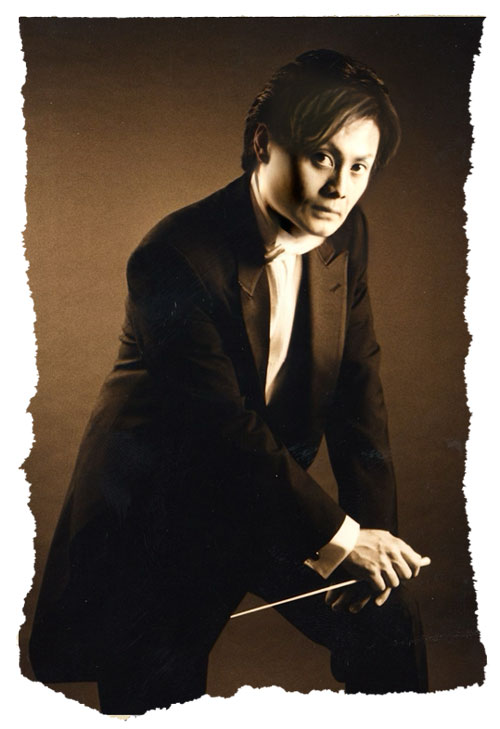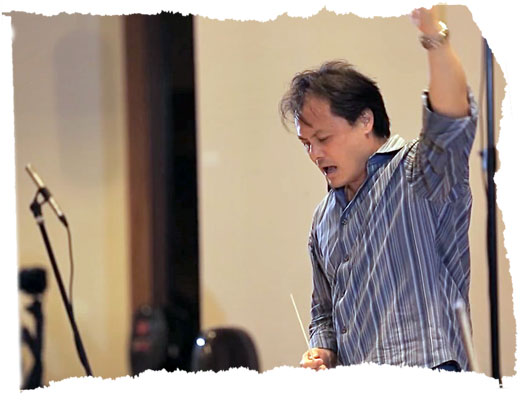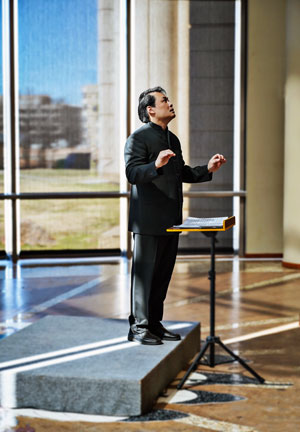Yenching Lee
Maestro
The Conductor and Music Counselor
Yenching Lee is the Music Director and Artistic Advisor of the Vergilius Chamber Orchestra. Previously, Mr. Lee served as the Film Composer and Film Orchestra Conductor for the 1993 Seattle Film Festival. Mr. Lee was an assistant and apprentice to Allen Remington, who was a student of Leonard Bernstein and remained faithful to Bernstein’s conducting method.
In 1994, Mr. Lee was appointed as the assistant conductor of the Bainbridge Symphony. Beginning in 1997, Mr. Lee gained international recognition with his debuts in Europe and Asia, performing with the Sliven Philharmonic, Moravian Philharmonic, Taiwan Contemporary Ensemble, and Montreal International Music Camp Symphony.
From 2000 to 2002, Mr. Lee served as the music director of the Yilan Youth Symphony. From 2004 to 2005, Mr. Lee was a conducting fellow under Music Director Zheng Xiao-Ying at the Xiamen Philharmonic.
In 2017, Mr. Lee became the music director for the Atlanta Metropolitan Symphony and the founder and director of the Beth-Horon Institute of Arts until the pandemic.

A native of Taiwan, Mr. Lee began his formal studies at the Coventry Centre for the Performing Arts in England, where he majored in violin. He later transferred to the Cornish College of the Arts in Seattle, where he studied composition under Bern Herbolshimer and conducting under Roger Nelson.
After completing his bachelor degree in composition from the Cornish College of the Arts, Mr. Lee continued his conducting training with Vincent LaSelva at the Juilliard School and the New York Grand Opera, and then with Jonathan Shames at the University of Oklahoma.
Mr. Lee’s composition recording of the Quartet for flute, violin, cello, and piano was released under the Muster-seed label, and his conducting recording of Beethoven’s Piano Concerto No.4 with pianist Yuki Ai was released by the Prague label.
During the past four years, Mr. Lee has published five novels in Taiwan.
The Vergilius Chamber Orchestra’s concerts are specifically selected and arranged by Mr. Lee. This conductor has both musical and artistic executive oversight and conducting experiences throughout the world.

Mr. Lee is an avid vinyl record collector and a lover of dogs and cats.

Photograph by Di Harvell.
The Conductor must be a great communicator
Since the audience is within earshot, the nonverbal or physical communication becomes crucial. This is when a conductor will use their hands. While the right hand is mostly utilized to denote speed and beat, the left hand’s motion denotes dynamics, emotion, and expression.
Conductors may utilize a baton, which is a stick, to direct a group of musicians by enlarging and enhancing their manual and physical movements. The conductor uses his or her right hand to hold a baton to control the tempo after setting it, mark the start of a new bar, to handle timing issues that help keep a the chamber musicians together.
Everybody’s roles are listed in the score, which is why conductors are so important during orchestra rehearsals. Only the conductor has access to the score. Even though a cellist can see the cello music in front of them, they cannot see what the violins or flutes are supposed to be playing.
